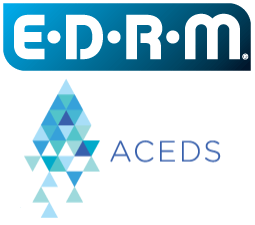In Federico et al. v. Lincoln Military Housing LLC, et al., 2:12-cv-80 (E.D. VA, Dec. 31, 2014), Virginia Magistrate Judge Douglas E. Miller, concluding that the defendants had not established that the plaintiffs had acted in bad faith when failing to meet production deadlines, declined to impose “any further sanction against Plaintiffs beyond the $29,000 expense associated with their expert’s production of the Facebook records”, except for a portion of the reasonable attorney’s fees associated with the original motion to compel.
Case Summary
In this class action for personal injury and property damage allegedly arising from mold in military housing, there had been numerous discovery disputes, including several motions for sanctions and reciprocal requests for costs and fees related to the parties’ alleged non-compliance. On June 4, 2014, the Court held the first hearing on discovery disputes, which came on the plaintiffs’ motions for Protective Orders seeking relief from the defendants’ requests for production, and certain subpoenas, during which the Court admonished the assembled plaintiffs present at the hearing to turn over related material to their attorney and permit counsel to determine whether it was relevant. The Court also advised the plaintiffs that there could be consequences if materials were not provided as required by the Rules.
After the plaintiffs’ supplemental productions were still considered incomplete by the defendant, the plaintiffs’ counsel stated they had engaged an outside vendor to provide estimates (which were then estimated to be $22,450, eventually rising to $29,000) and design a search protocol for electronic media. On July 10, the plaintiffs requested an emergency hearing to extend the July 17 production deadline, which the Court declined to do, advising plaintiffs’ counsel that if the plaintiffs were unable to produce any more responsive documents, they were required to advise the Court and defendants of the nature of any search they had performed. After the plaintiffs failed to meet the production deadline, the defendants filed a motion for sanctions to dismiss the plaintiffs’ claims for failure to comply.
In subsequent oral argument regarding the defendants’ motion, the plaintiffs indicated that they had engaged their IT consultant, who was present and described the ongoing process for searching and processing relevant records, primarily from social media. As a result, the Court deferred any ruling until after the consultant’s production. In September, Plaintiffs produced the results of their consultant’s search, including over 5,000 records from social media, and contended that any material omitted resulted from their clients’ inexperience in managing electronic production and not from bad faith or intentional destruction of evidence.
Judge’s Decision
Judge Miller used the Fourth Circuit’s four-part test to help decide whether to impose sanctions, as follows: (1) whether the non-complying party acted in bad faith, (2) the amount of prejudice that noncompliance caused the adversary, (3) the need for deterrence of the particular sort of non-compliance, and (4) whether less drastic sanctions would have been effective. With regard to the bad faith factor, Judge Miller stated:
“Defendants have failed to establish that any Plaintiff deliberately destroyed evidence known to be relevant, or otherwise acted in bad faith. While Plaintiffs’ delayed production should not have required Court action, they did eventually produce a nearly complete record of email and social medial posts and these materials were available to Defendants prior to most of the depositions. In addition, the limited relevance of the voluminous material produced suggests that any gaps in production were not likely intentional and do not prejudice Lincoln’s defense.”
As a result, Judge Miller ruled that the Court “declines to impose any further sanction against Plaintiffs beyond the $29,000 expense associated with their expert’s production of the Facebook records, but will award a portion of the reasonable attorney’s fees associated with the original motion to compel.”
So, what do you think? Should the plaintiffs have been sanctioned for their late production or was the judge’s ruling appropriate, considering the plaintiffs’ challenges and expense and efforts to comply? Please share any comments you might have or if you’d like to know more about a particular topic.
Disclaimer: The views represented herein are exclusively the views of the author, and do not necessarily represent the views held by CloudNine. eDiscoveryDaily is made available by CloudNine solely for educational purposes to provide general information about general eDiscovery principles and not to provide specific legal advice applicable to any particular circumstance. eDiscoveryDaily should not be used as a substitute for competent legal advice from a lawyer you have retained and who has agreed to represent you.









